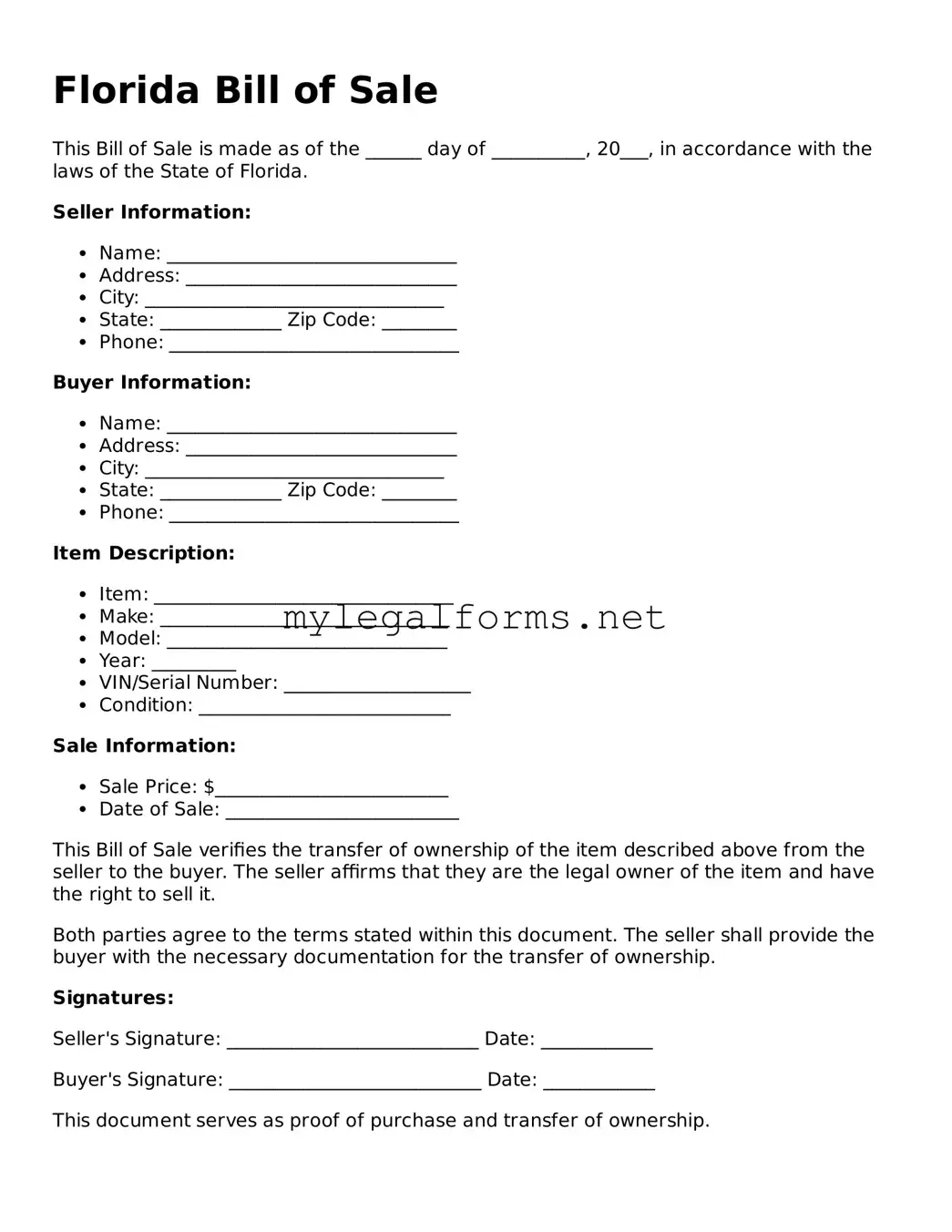Filling out a Florida Bill of Sale form can seem straightforward, but many people make common mistakes that can lead to complications down the line. One frequent error is not including all necessary details about the item being sold. Buyers and sellers should ensure that the description is clear and complete, including make, model, year, and Vehicle Identification Number (VIN) for vehicles. Omitting this information can create confusion or disputes later.
Another common mistake is failing to provide the correct names and addresses of both the buyer and the seller. This information is crucial for establishing the identities of the parties involved. If any of these details are incorrect or missing, it could complicate ownership transfer or future legal matters.
People often overlook the importance of signatures. The Bill of Sale requires the signatures of both parties to be legally binding. Without these signatures, the document may not hold up in court if disputes arise. Additionally, some individuals forget to include the date of the transaction. This date is essential for establishing the timeline of ownership and can be critical for tax purposes.
Another mistake is not considering the need for witnesses or notarization. While Florida does not always require a Bill of Sale to be notarized, having a notary public or witnesses can add an extra layer of protection. This can be especially useful if the transaction is later questioned.
Misunderstanding the payment terms can also lead to issues. Some sellers may assume that a verbal agreement suffices, but it’s vital to clearly outline payment methods and terms in the Bill of Sale. This clarity helps prevent misunderstandings and ensures both parties are on the same page.
Additionally, people sometimes neglect to keep copies of the completed Bill of Sale. After the transaction, both parties should retain a copy for their records. This document can be essential for future reference, especially if questions about ownership arise.
Another frequent oversight is not checking local regulations. Depending on the type of item being sold, there may be specific state or local requirements that need to be adhered to. Ignoring these regulations can lead to fines or legal issues.
Lastly, many individuals fail to read the entire form before signing. Each section of the Bill of Sale serves a purpose, and skipping over details can lead to mistakes that might have been easily avoided. Taking the time to review the form thoroughly can save headaches in the future.

